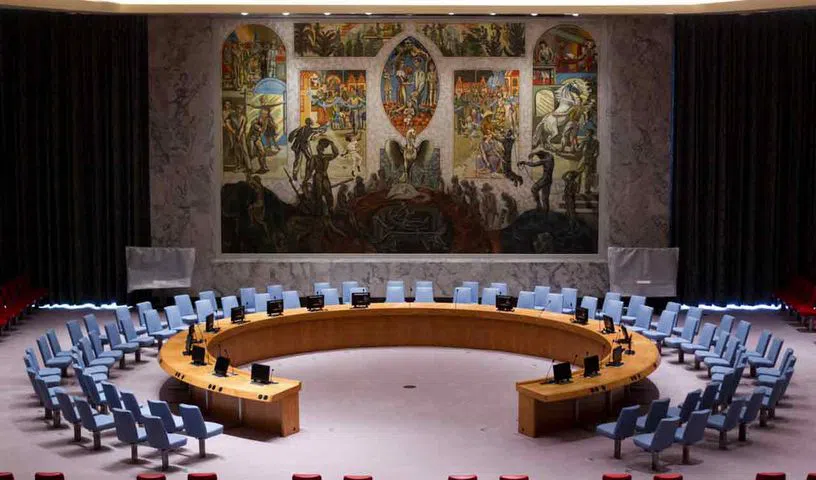
Washington also supports creating two permanent seats for Africa in addition to non-permanent membership for African countries
New York: The US has reaffirmed its “longstanding support” for India, Japan and Germany to sit as permanent members in the United Nations Security Council, as it announced new proposals on reform of the powerful UN body.
Just days before world leaders gather in New York for the landmark Summit of the Future and UN General Assembly high-level week, US Ambassador to the UN Linda Thomas-Greenfield announced on Thursday that Washington supports creating two permanent seats for Africa on the Council in addition to non-permanent membership for African countries.
She also announced at the Council on Foreign Relations at a talk on ‘Future of Multilateralism and UN Reform’ that the US supports creating a new elected seat on the Security Council for Small Island Developing States and supports engaging in text-based negotiations.
In response to a question during the interaction about what this means for Washington’s longstanding support for permanent seats for India, Germany, and Japan, she said, “On the G4, we have expressed our support for Japan and Germany and India. We have not explicitly expressed support for Brazil.”
The G4 nations, comprising Brazil, Germany, India, and Japan, are four countries which support each other’s bids for permanent seats on the United Nations Security Council.
“India has the largest population in the world, and we really, really strongly support their being on the Council. And I think there are just no grounds for denying India that, but there will be people who will be opposed to various countries for various reasons. And that’s all going to be part of our negotiation moving forward,” Thomas-Greenfield said.
Earlier, a senior administration official, briefing reporters on the US announcements, stressed that Washington was “not backing away at all” from its support to India, Japan and Germany for a permanent seat.
“No, not at all. We are not backing away at all from the positions that we’ve staked out publicly. We still firmly support permanent seats for Japan and India. The President has affirmed a reformed Council should also include permanent representation for Latin America and the Caribbean, and other countries we’ve long supported, in addition to Japan and India. That also, as you stated, does include Germany.”
The senior administration official added that what the US is not putting forward today is a specific vision for the precise number of seats on a reformed Security Council.
“As I said, the announcement we’re making today helps to put some meat around the bones of our vision for a reformed Security Council, but there are many questions that will need to be addressed between and among Member States and that ultimately will be fodder for the text-based negotiations that we are calling to start in the context of the IGN process,” the official said referring to the Inter-Governmental Negotiations on UNSC reform.
“We affirm our longstanding support for Germany, India, and Japan, and we’ve also said there should be representation from the GRULAC countries,” the official added, making a reference to the Group of Latin America and Caribbean Countries.
In response to another question on the new US position, the official said that Washington’s proposals of adding two permanent seats for African countries, a non-permanent seat for Small Island Developing States and moving to text-based negotiations are new and the world has not heard these ideas espoused just yet.
“And we’re also standing by the longstanding positions that we’ve had supportive of Germany, India, and Japan, and also supportive of permanent representation for Latin America and the Caribbean,” the official said. The official, however, reiterated that the US does not support expanding the veto to new permanent members.
“That position has not changed. We believe that… expanding the veto would lead to only greater deadlock in the Council….We recognise there will never be a perfect Security Council; there will never be a model Security Council reform that satisfies everyone’s maximalist goals. But our view on this is that we cannot let the perfect be the enemy of the good, and we can and should still try to achieve a reformed Council that is more representative, is more credible, and ultimately more effective in addressing the challenges and opportunities that the world faces today,” the official said.
India has been at the forefront of years-long efforts calling for reform of the Security Council, saying the 15-nation Council, founded in 1945, is not fit for purpose in the 21st century and does not reflect contemporary geo-political realities.
A polarised Security Council has also failed to deal with current peace and security challenges with Council members sharply divided on conflicts such as the Ukraine war and the Israel-Hamas conflict.
Prime Minister Narendra Modi will be among the world leaders arriving in New York later this month for the ‘Summit of the Future’ being held at the UN headquarters September 22-23 and during when the ‘Pact of the Future’ will be adopted by consensus.
The Pact, coming as the UN turns 80 next year, is aimed at charting the path towards achieving the Sustainable Development Goals and “responding to emerging challenges and opportunities.”







